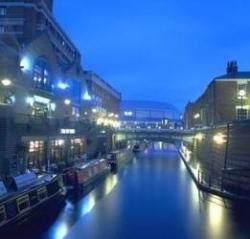A group of Labour Lords have raised concerns over the process of turning the British Waterways Board, which was formerly a government quango, into a charity.
As part of a massive quango cull last year, the government decided to turn British Waterways into a charity and cull its quango counterpart the Inland Waterways Advisory Council (IWAC) as part of the Public Bodies Bill.
In a House of Lords debate on the Bill this week, Lord Berkeley for Labour complained that there would be funding tensions when British Waterways became a charity:
“We have not been and we probably will not be told where it will get its funding from,” he complained, “and it struggles hard to find funding at the moment.”
He also argued that an independent body like the IWAC was needed to guide it: “I hope there will be a transition period of several years after the charity is established before this body is abolished,” he said.
Lords Faulkner of Worcester for Labour tabled an amendment which would remove the IWAC from the list of public bodies to be abolished.
However, Conservative Lord Henley and a spokesperson for Defra argued that although the IWAC would eventually be culled, how long it would stay around was still to be decided in an upcoming consultation on the British Waterways.
Lord Faulkner agreed to withdraw the amendment, but noted: “This is one of those areas where it would have been better if the consultation had happened before the Bill rather than the other way round.
“It does not seem sensible to abolish a body such as the IWAC and then to find in two or three years’ time that you have to reinvent it because that role is still needed under the new status of the British Waterways. We shall have to wait and see.”
With an income of around £187m, British Waterways will be one of the sector’s largest charities. Around 90 per cent of British waterways are covered by the organisation.









